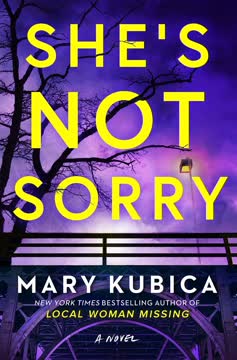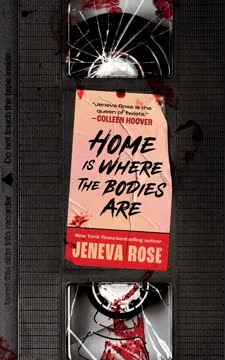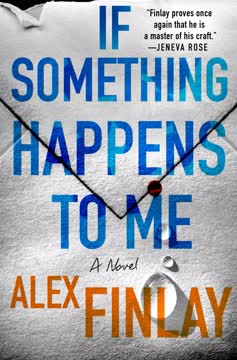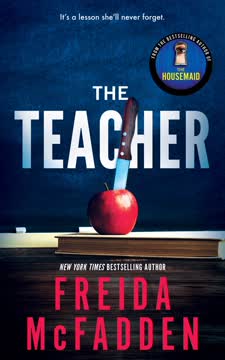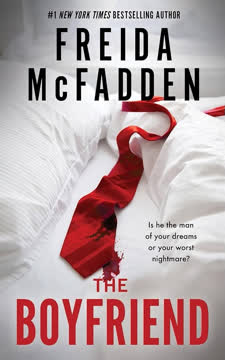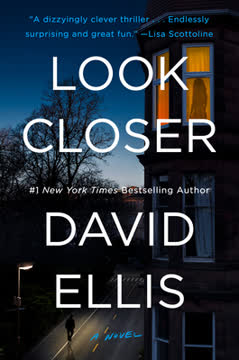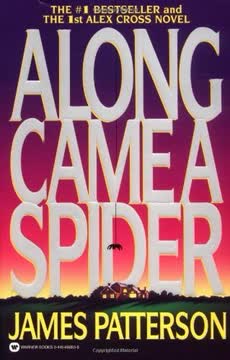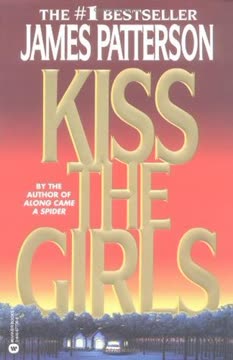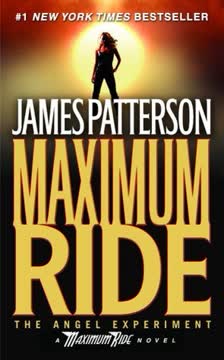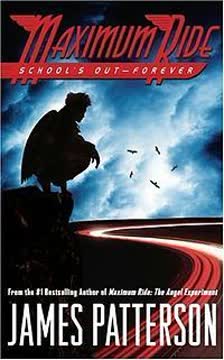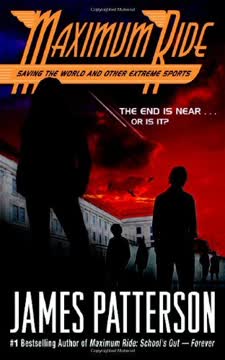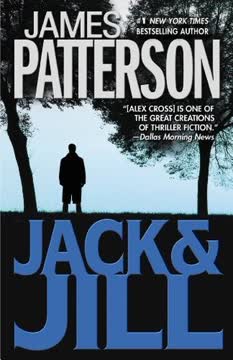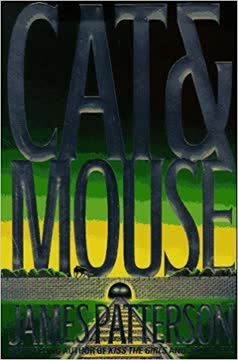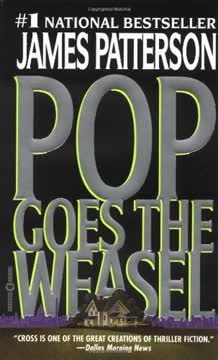Plot Summary
Halloween's Dark Awakening
In 1995, a twelve-year-old boy in Bridgehampton, New York, wakes up on Halloween with a sense of purpose. He dresses in costume, but instead of a trombone in his case, he carries a loaded BB rifle. At school, he opens fire on his classmates, injuring several before being apprehended. The event is shocking but dismissed as a troubled child's outburst. Yet, the boy's thrill and lack of remorse hint at a darkness that will haunt the town for decades. The legend of the Murder House at 7 Ocean Drive, already infamous, looms in the background, its reputation as a place where "no one ever leaves alive" cemented in local lore.
Lovers, Lies, and Arrest
Sixteen years later, Noah Walker , a rugged handyman, is having an affair with Paige Sulzman, the wife of a wealthy local. Their secret is threatened when police burst into Noah's home, arresting him for the brutal murders of Melanie Phillips, a local waitress, and Zach Stern, a Hollywood agent. The crime scene is the notorious Murder House. Detective Jenna Murphy, new to the Southampton force and niece of the police chief, is drawn into the case. Noah's arrest is politically charged, with the town's elite pressuring the police for a quick resolution. Noah's confession, under dubious circumstances, seems to seal his fate.
The Murder House Murmurs
Detective Murphy, haunted by her own past, investigates the Murder House. The mansion's Gothic architecture and grim history unsettle her, triggering panic attacks and nightmares. She discovers evidence that the murders were sadistic and calculated, not crimes of passion. The house's legacy of violence stretches back centuries, with rumors of disappearances, torture, and a cursed family—the Dahlquists—who built it. The house itself seems to breathe, its walls echoing with the suffering of past victims. Murphy's instincts tell her that Noah is not the killer, but the town's appetite for closure is insatiable.
Power, Politics, and Pressure
Chief Langdon James, Murphy's uncle, is under immense pressure from the town's wealthy and powerful, especially John Sulzman, Paige's husband. Sulzman threatens to ruin James's career if Noah isn't convicted. The investigation is tainted by political ambition, personal vendettas, and the desire to protect the town's reputation. Evidence is manipulated, and the police force is divided. Murphy, an outsider with a tarnished NYPD record, finds herself isolated as she questions the official narrative. The lines between justice and self-preservation blur, and the Murder House's curse seems to infect everyone involved.
Detective Murphy's Instinct
Murphy's experience and intuition lead her to doubt Noah's guilt. She uncovers inconsistencies in the timeline, the lack of physical evidence tying Noah to the scene, and the sadistic nature of the murders. Her investigation is hampered by her suspension and the chief's insistence on protocol. Meanwhile, another murder—a prostitute found impaled in the woods—suggests a serial killer is at work. Murphy's nightmares intensify, hinting at a repressed childhood trauma connected to the Murder House. She becomes obsessed with the case, risking her career and safety to pursue the truth.
Blood on the Armoire
Murphy's analysis of the Murder House crime scene reveals that Melanie was handcuffed and forced to watch Zach's murder before being killed herself. The killer's methods are ritualistic, echoing the house's dark history. The brutality and staging of the bodies suggest a perpetrator who enjoys inflicting pain and orchestrating fear. Murphy's discovery of abrasions on the furniture and the calculated nature of the attacks further convince her that Noah is being framed. The house's legacy of impalement and torture becomes a chilling motif, linking past and present crimes.
Confession and Corruption
Noah's supposed confession and the discovery of the murder weapon in his home are the prosecution's linchpins. But Murphy suspects the confession was coerced and the evidence planted by Chief James, under pressure from Sulzman. The trial becomes a media circus, with Noah dubbed "Surfer Jesus" for his looks and demeanor. Jailhouse snitches and manipulated witnesses testify against him. The chief's testimony is crucial, but before he can take the stand, he is attacked and tortured in his home, dying from his wounds. The case against Noah collapses without the chief's testimony, and he is released.
A Hooker in the Woods
While Noah is in custody, another woman is found murdered—impaled on a tree stump in the woods. The timing exonerates Noah for this crime, but the police refuse to connect the cases. Murphy sees a pattern: the killer targets vulnerable women, stages their bodies, and uses impalement as a signature. The murders echo the rituals described in the Dahlquist family's journals, which Murphy uncovers in her research. The killer's need for attention and power grows, and the town's denial allows him to continue. Murphy's pursuit of the truth becomes personal, as she realizes her own childhood trauma may be linked.
The Past Never Dies
Murphy investigates a series of unsolved murders and disappearances stretching back decades, all connected to the Murder House and the Dahlquist family. She discovers that the original patriarch, Winston Dahlquist, and his descendants were suspected of ritualistic killings involving impalement and torture. The family crest—a shrike, a bird that impales its prey—becomes a symbol of the killer's legacy. Murphy's nightmares intensify, revealing repressed memories of being abducted as a child and taken to the Murder House. She learns she was adopted after being abandoned as a baby, her biological mother a victim of the Dahlquist curse.
The Trial of Surfer Jesus
Noah's trial is a spectacle, with the prosecution relying on circumstantial evidence, coerced confessions, and the testimony of unreliable witnesses. Murphy, torn between her duty and her doubts, is called to testify. She lies on the stand, claiming the chief told her of Noah's confession immediately after it happened, to keep the case alive. The jury convicts Noah, but the truth remains elusive. The real killer is still at large, manipulating events from the shadows. The town celebrates justice, but Murphy is haunted by the knowledge that the wrong man is behind bars.
The Crucifixion of Noah
Noah is sent to Sing Sing, where he is targeted by white supremacist gangs for refusing to join them. He is brutally beaten and crucified—his hands nailed to a table. Isolated and broken, he loses hope. Meanwhile, Murphy's investigation continues, and she uncovers evidence that the chief planted the murder weapon and coerced witnesses. When the chief's posthumous letter is discovered, Murphy testifies to Noah's innocence, and his conviction is overturned. Noah is released, but the damage is done. The real killer remains free, and the cycle of violence continues.
The Legacy of the Dahlquists
Murphy's research into the Dahlquist family reveals a pattern of violence passed down through generations. The last Dahlquist, Holden VI, was suspected of rape and murder but died by suicide. However, evidence suggests he fathered a child with a local prostitute, Gloria Willis. This child, abandoned at a police station, was adopted and raised in Bridgehampton. Murphy suspects that the killer is a descendant of the Dahlquists, carrying on the family's legacy of sadism. The revelation that she herself is the abandoned child—Holden's daughter—shatters her sense of identity and connects her fate to the Murder House.
The Second Shooter
Murphy revisits the 1995 school shooting, suspecting that Noah was framed as the sole perpetrator. She uncovers evidence of a second shooter, likely Aiden Willis, who was manipulated by another child. The pattern of framing and manipulation mirrors the current murders. The town's refusal to confront its past allows the cycle of violence to continue. Murphy's investigation brings her closer to the truth, but also puts her in danger, as the killer targets those who get too close. The lines between victim and perpetrator blur, and Murphy's own memories become both a clue and a curse.
The Monster's Inheritance
The true killer is revealed to be Justin Rivers, the charming owner of Tasty's Diner and a secret descendant of the Dahlquists. Justin, abandoned as a baby and adopted into a loving family, discovers his heritage and becomes obsessed with fulfilling the family's legacy. He manipulates Aiden and Noah, frames them for his crimes, and continues the ritualistic murders. Justin's need for power, control, and recognition drives him to ever more elaborate killings. Murphy's confrontation with Justin is both physical and psychological, as she must overcome her own trauma to stop him.
The Trapdoor and the Truth
Murphy's nightmares lead her to a hidden trapdoor in the Murder House's carriage house. She descends into the darkness, reliving her childhood abduction. She remembers Aiden, her half-brother, rescuing her from Holden VI and Justin. The trauma of that day, repressed for years, is the key to understanding the present. Aiden, long suspected and tormented, is revealed as a victim and a hero, not a killer. The truth about Murphy's parentage, Aiden's suffering, and Justin's manipulation comes to light in a final, harrowing confrontation beneath the Murder House.
The Final Confrontation
In a climactic showdown at the Murder House, Murphy, Noah, Justin, and Aiden's fates collide. Justin, desperate to complete his legacy, tries to kill Murphy and Noah, but is thwarted by Aiden's intervention and Murphy's resilience. The police arrive, and Justin is arrested, finally ending the Dahlquist curse. Murphy's identity as Holden's daughter is revealed, and she comes to terms with her past. Noah, exonerated and free, finds solace with Murphy. The Murder House, symbol of generations of violence, is finally stripped of its power.
Bloodlines Revealed
Murphy and Aiden visit their mother's grave, acknowledging their shared blood and the pain of their past. Aiden, long misunderstood and abused, is exonerated and finds peace. Murphy, once the "red sheep" of her family, embraces her true identity and the family she never knew. The town, scarred by decades of secrets and violence, begins to heal. The legacy of the Dahlquists is confronted and dismantled, and the survivors find hope in forgiveness and connection.
Demolition and Redemption
The Murder House is demolished, its stones and secrets reduced to rubble. Murphy inherits the property, selling it and sharing the proceeds with Aiden. She and Noah, now partners in life and work, build a new home and a new future. The town of Bridgehampton, once haunted by the sins of the past, looks forward to a brighter tomorrow. The story ends with the promise of redemption, the power of truth, and the resilience of those who refuse to be defined by their bloodlines.
Characters
Jenna Murphy
Jenna Murphy is a former NYPD detective with a tarnished reputation, now working in Bridgehampton under her uncle, Chief Langdon James. Intelligent, stubborn, and deeply intuitive, Jenna is driven by a need for justice and a compulsion to follow her instincts, even when it costs her professionally and personally. She is plagued by nightmares and panic attacks, which are later revealed to be repressed memories of her own childhood abduction and near-murder at the Murder House. Jenna's journey is one of self-discovery, as she uncovers her true parentage—she is the daughter of Holden Dahlquist VI and a local prostitute, abandoned as a baby and adopted by the Murphys. Her resilience, empathy, and refusal to accept easy answers make her both a formidable detective and a deeply human protagonist. Her relationships—with her uncle, with Noah, with Aiden, and with Justin—are complex, marked by trust, betrayal, and ultimately, forgiveness.
Noah Walker
Noah is a rugged, blue-collar handyman with a troubled past and a reputation as an outsider. Wrongly accused of multiple murders, he becomes the town's scapegoat, dubbed "Surfer Jesus" by the media. Noah's stoicism masks deep wounds from childhood, including being framed for a school shooting and later for the Murder House killings. In prison, he endures brutal violence and isolation, yet maintains his integrity and refuses to betray others, even when it would benefit him. His relationship with Jenna is fraught with suspicion, attraction, and mutual respect. Noah's journey is one of endurance and redemption, as he is exonerated and finds love and purpose with Jenna. His character embodies the themes of resilience, the corrosive effects of scapegoating, and the possibility of healing after trauma.
Justin Rivers
Justin is the owner of Tasty's Diner, a seemingly affable and generous member of the community. Beneath his friendly exterior, he is the true heir to the Dahlquist legacy—a sadistic, intelligent, and manipulative serial killer. Abandoned as a baby and adopted into a loving family, Justin discovers his heritage and becomes obsessed with fulfilling the family's tradition of ritualistic murder. He frames others for his crimes, manipulates Aiden and Noah, and orchestrates a campaign of terror that spans years. Justin's psychological complexity lies in his need for power, recognition, and control, as well as his capacity for deception. His downfall comes when Jenna and Noah expose his true identity, ending the Dahlquist curse.
Aiden Willis
Aiden is a socially awkward, mentally challenged cemetery worker, long suspected of being dangerous but ultimately revealed as a victim and a hero. The son of Gloria Willis, a local prostitute, and half-brother to Jenna, Aiden is manipulated by Justin and traumatized by years of abuse and suspicion. He is the "second shooter" in the school incident, coerced by Justin, and later becomes a scapegoat for the town's unsolved crimes. Despite his suffering, Aiden's act of rescuing Jenna as a child is pivotal, and his eventual exoneration brings a measure of peace. Aiden's character explores themes of marginalization, the impact of trauma, and the redemptive power of compassion.
Chief Langdon James
Langdon James is Jenna's uncle and the long-serving chief of police. He is a man caught between his duty, his ambition, and the corrupting influence of the town's elite. Under pressure, he plants evidence and coerces confessions to secure convictions, believing he is serving the greater good. His relationship with Jenna is loving but fraught, as he both mentors and undermines her. Langdon's murder—tortured and killed in a manner echoing the Dahlquist rituals—serves as a catalyst for Jenna's final push for the truth. His posthumous confession and the revelation of his own compromises highlight the dangers of sacrificing integrity for expediency.
Paige Sulzman
Paige is Noah's lover and the wife of a powerful local businessman. Caught between her abusive husband and her passion for Noah, Paige becomes a victim of the town's machinations. Her support helps secure Noah's release, but she ultimately dies by suicide, a casualty of the violence and corruption that permeate Bridgehampton. Paige's character underscores the vulnerability of women in a patriarchal, class-divided society and the collateral damage of unchecked power.
Isaac Marks
Isaac is Jenna's former partner and eventual chief of police. Ambitious, insecure, and easily manipulated, Isaac is initially positioned as a possible suspect but is ultimately revealed as a pawn in Justin's schemes. His antagonism toward Jenna stems from professional jealousy and personal resentment. Isaac's character illustrates the dangers of mediocrity in positions of power and the ease with which justice can be subverted by those seeking self-preservation.
Lauren Ricketts
Lauren is a young, idealistic patrol officer who becomes Jenna's ally. Intelligent, resourceful, and principled, Ricketts risks her career to help Jenna pursue the truth. Her willingness to challenge authority and follow the evidence wherever it leads makes her a vital partner in the investigation. Ricketts represents the hope for a new generation of law enforcement, untainted by the town's legacy of corruption.
Melanie Phillips
Melanie is a young waitress whose murder at the Murder House sets the events of the novel in motion. Her beauty, ambition, and relationships with both Noah and Zach Stern make her a focal point of the town's anxieties and prejudices. Melanie's death exposes the rot beneath Bridgehampton's surface and forces the community to confront its darkest secrets.
Holden Dahlquist VI
Holden VI is the last of the Dahlquist line, a man suspected of rape, murder, and unspeakable cruelty. His suicide, after attempting to kill Jenna as a child, ends the family's direct lineage but sets in motion the events that will haunt Bridgehampton for decades. Holden's journals and rituals become the blueprint for Justin's crimes, and his legacy is the curse that Jenna must finally break.
Plot Devices
Generational Trauma and Inherited Evil
The novel's central plot device is the idea of evil as an inherited curse, passed down through the Dahlquist family. The Murder House itself is both a literal and symbolic vessel for this legacy, its architecture and history echoing the violence of its owners. The use of journals, family crests, and ritualistic killings ties the present to the past, creating a sense of inevitability and doom. The revelation that Jenna is Holden's daughter and Justin his son (or so it seems) brings the theme of bloodlines full circle, forcing the characters to confront the question of whether destiny can be escaped.
Unreliable Memory and Repressed Trauma
Jenna's panic attacks and nightmares serve as both a psychological portrait and a narrative device. Her repressed memories of childhood abduction are gradually revealed through dreams, flashbacks, and physical triggers. This device allows the reader to experience Jenna's confusion and fear, while also providing crucial clues to the mystery. The interplay between memory and reality blurs the line between victim and investigator, making Jenna's journey as much about self-discovery as about solving the case.
Framing and False Confessions
The novel repeatedly uses the device of framing—innocent people are set up to take the fall for crimes they did not commit. Noah is framed for the Murder House killings, Aiden for the school shooting and later murders, and even Jenna herself is arrested based on planted evidence. False confessions, coerced testimony, and manipulated forensics highlight the fragility of justice and the ease with which truth can be subverted. The courtroom scenes, with their focus on hearsay, chain of custody, and legal maneuvering, underscore the theme of justice as a contested and often compromised ideal.
Dual Timelines and Interwoven Mysteries
The narrative structure alternates between present-day investigations and flashbacks to past crimes, including the 1995 school shooting, the 2007 disappearances, and the 1994 abduction. This dual timeline creates suspense and allows for gradual revelation of key facts. The interweaving of multiple mysteries—each with its own suspects, victims, and red herrings—keeps the reader off-balance and heightens the sense of conspiracy and cover-up.
The Haunted House as Character
The Murder House is more than a backdrop; it is a character in its own right, shaping the actions and fates of those who enter it. Its architecture, history, and atmosphere evoke dread and fascination, serving as the locus of trauma, violence, and ultimately, catharsis. The house's demolition at the novel's end symbolizes the breaking of the curse and the possibility of renewal.
Analysis
The Murder House is a masterclass in the modern gothic thriller, blending elements of psychological suspense, police procedural, and family saga. At its core, the novel explores the corrosive effects of generational trauma, the seductive power of evil, and the struggle to break free from the past. Through its labyrinthine plot and deeply flawed characters, the book interrogates the nature of justice, the dangers of scapegoating, and the possibility of redemption. The haunted mansion at 7 Ocean Drive is both a literal and metaphorical
Last updated:
Review Summary
The Murder House receives mostly positive reviews, with readers praising its gripping plot, unexpected twists, and fast-paced storytelling. Many found it suspenseful and difficult to put down. Some readers appreciated the complex characters and haunting atmosphere. However, a few critics found the story predictable or the characters unrealistic. Overall, it's considered one of Patterson's better standalone novels, with many fans recommending it as an engaging thriller that keeps readers guessing until the end.
Similar Books
Download PDF
Download EPUB
.epub digital book format is ideal for reading ebooks on phones, tablets, and e-readers.

